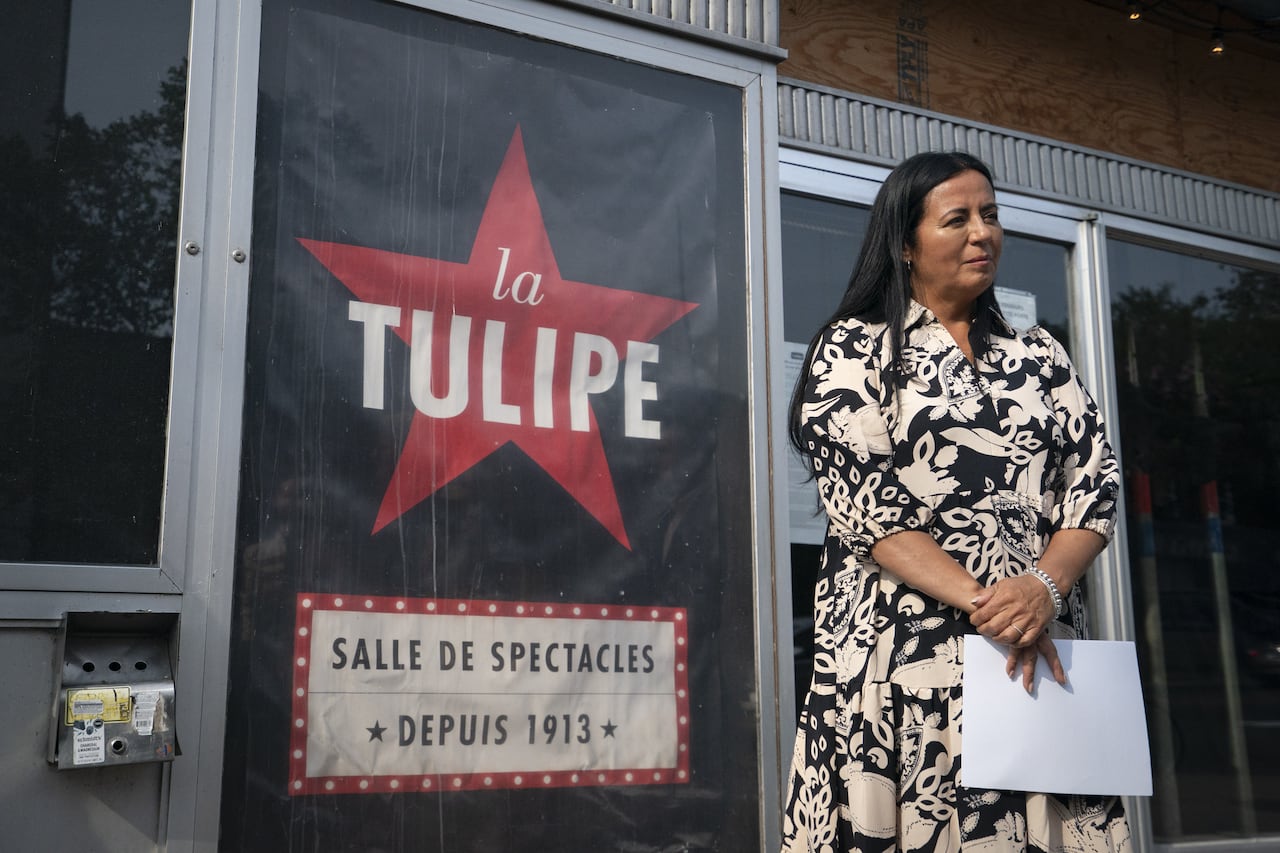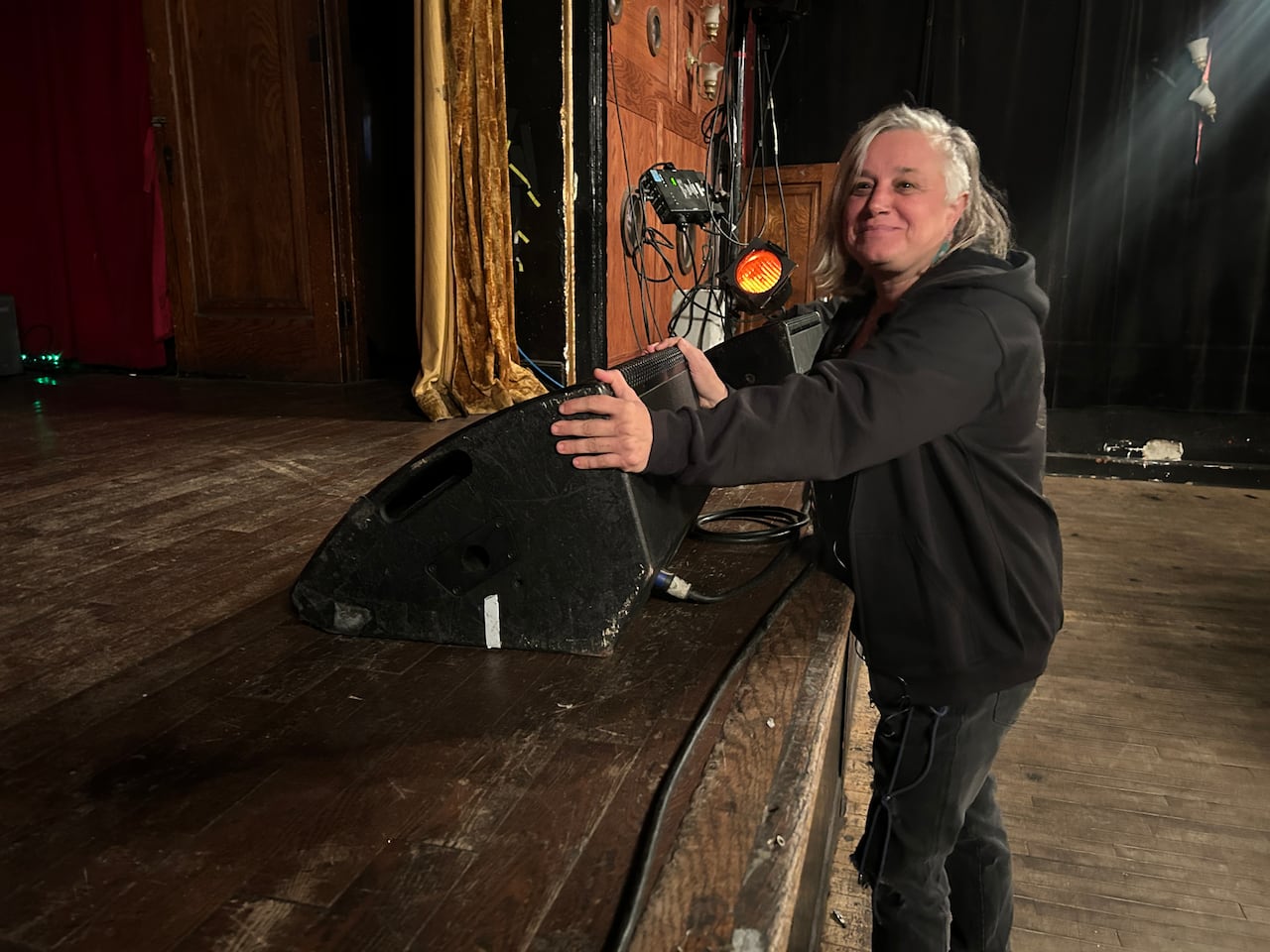On Montreal’s Saint-Laurent Boulevard, along a stretch where people and music spill into the streets, the revamped Champs Sports Bar earned a reputation as a popular spot — not just to watch sports, but for karaoke, trivia and dance nights, and as a welcoming space for the city’s 2SLGBTQ+ community.
But starting in 2022, the bar faced repeated noise complaints from its next-door neighbour, the owner of a 10-unit apartment that was a commercial property up until the early 2010s.
The bar received numerous visits by Montreal police and a city noise inspector, was pursued in civil court and subjected to an investigation by Quebec’s liquor board, the Régie des alcools, des courses et des jeux.
Last year, Champs was forced to ban dancing after the Régie found the bar didn’t have the right permit. It was fined $3,000, ordered to close for five days and install soundproofing. Champs also made changes to its sound system and hired an acoustic expert to test its noise levels.
“It’s very unnecessarily complicated,” said Pamela Bernstein, who works at Champs and helped the bar navigate the complaints it faced.
“Everything takes forever and costs everyone so much money.”
In the end, Champs spent more than $30,000 in legal fees and another $14,000 to install the soundproofing alone, according to Bernstein.
Champs got its official permit earlier this month and can finally host dance nights again — but only on weekends.
While large festivals continue to see success, some of the city’s smaller venues and bars have struggled or even closed, faced with increasing noise complaints and other challenges.
Costly compliance
Several other bars and venues have also faced hefty fines — and, in some cases, have even been forced to close — following noise complaints.
Documents obtained by CBC News through an access-to-information request show a rise in calls to the city’s 311 service.
Between the start of 2025 and the end of August, the city received 3,280 requests related to noise issues, with the highest totals in the Plateau and downtown Ville-Marie boroughs. That’s on pace to surpass last year’s citywide total of 4,480, and the two years prior.
The data doesn’t include interventions by Montreal police, which didn’t immediately provide those figures to CBC.
Bernstein suspects the changing face of the neighbourhood may have something to do with the increase.
In the case of Champs, Bernstein said, the complaints all seem to have come from a single individual.
Many bar and restaurant workers she knows have been priced out of the borough, replaced with residents who aren’t necessarily on a late-night schedule, and don’t share the same tolerance for noise.
La Tulipe, a century-old concert venue in the Plateau, closed last year after a new neighbour pursued legal action over noise concerns. In response, Montreal set up a fund to finance soundproofing for performance venues — but bars like Champs aren’t eligible.
Under outgoing Mayor Valérie Plante, the city also prepared a nightlife policy that aimed to address concerns from bars and concert venues, while also respecting residents who want peace and quiet. Now, the noise debate has emerged as an issue in the municipal election.

Sergio Da Silva, who spoke out after his bar Turbo Haüs was targeted by noise complaints, helped put the issue front and centre. He is running for Transition Montréal, a new party headed by city councillor Craig Sauvé.
The party wants to appoint a night mayor and night council to act as a mediator in such disputes. It would also increase the soundproofing assistance program and limit police involvement to safety and emergencies.
The other party leaders, including Luc Rabouin of Projet Montréal and Soraya Martinez Ferrada of Ensemble Montréal, have also said they would address the problem.
Rabouin said his party would adopt noise regulations consistent with the city’s nightlife policy, while Martinez Ferrada said she would direct noise complaints to a specialized administrative unit rather than forwarding them directly to police — and try to resolve them through mediation before imposing fines.
Part of the economy — and culture
Jon Weisz, executive director of Les SMAQ, an association of small, alternative music venues, said he’s pleased to see the issue getting attention, because noise complaints are threatening many small spaces.
“We need the city to understand that we’re part of the economy and part of the culture and part of Montreal’s vibrancy, and no one in the nightlife space is trying to annoy their neighbours,” he said.
His group released a list of electoral priorities, including a clear decibel limit for venues, mediators to de-escalate the situation instead of sending in police and reducing the dollar amount for fines.

(Kwabena Oduro/CBC)
Under the Plateau’s new proposed bylaw, venues could be fined $10,000 for a first infraction.
“That would close one of our venues immediately to get that kind of fine,” said Kiva Tanya Stimac, one of the founders of venue Casa del Popolo and the Suoni Per Il Popolo Festival.
Stimac said cultural spaces of all types — “where creativity can happen” — need to be preserved.
A recent report found that Montreal’s nightlife generates 34,000 jobs and $2.3 billion in spending.
That same report recommended protecting nightlife spots from being subject to fines and threats from newly installed residential neighbours.
London, Melbourne and San Francisco have all implemented laws ensuring that noise-causing sites aren’t subject to restrictions because of residential developments or zoning changes made after they were in place.
Will Straw, a McGill University professor of urban media studies, said Montreal should follow the lead of other cities.
“We have not developed good policies to protect nightlife,” he said.
“Complaints about noise are the single factor that has led to the most closings of nightlife venues and the general sense that there’s a crisis that’s kind of specific to Montreal.”
Bernstein, from Champs, is in favour of such a change. If you’re going to live in an area known for nightlife, there needs to be “a reasonable tolerance for sound,” she said.






